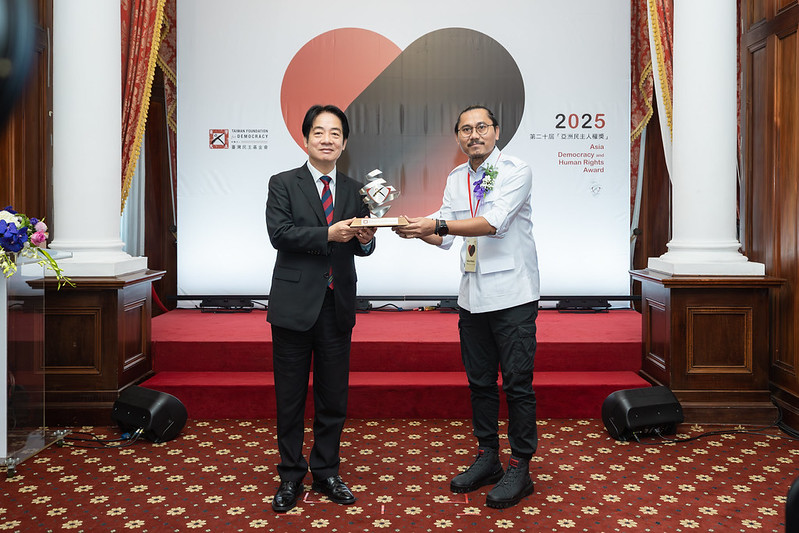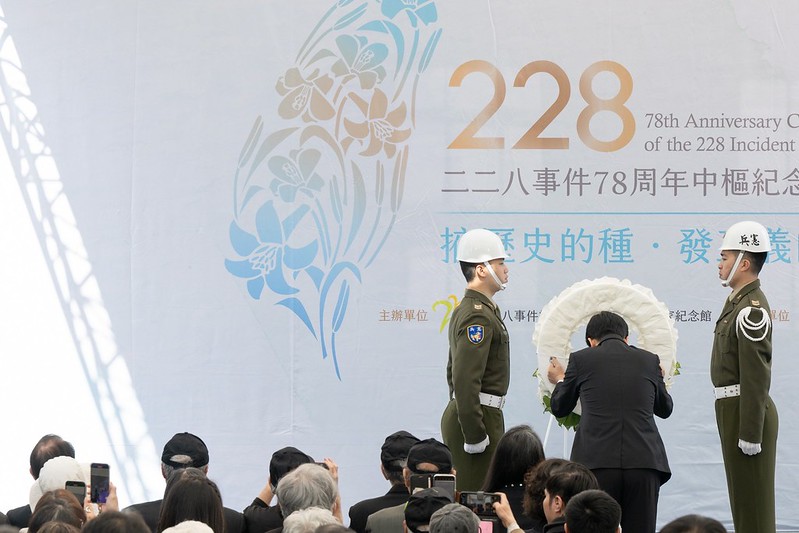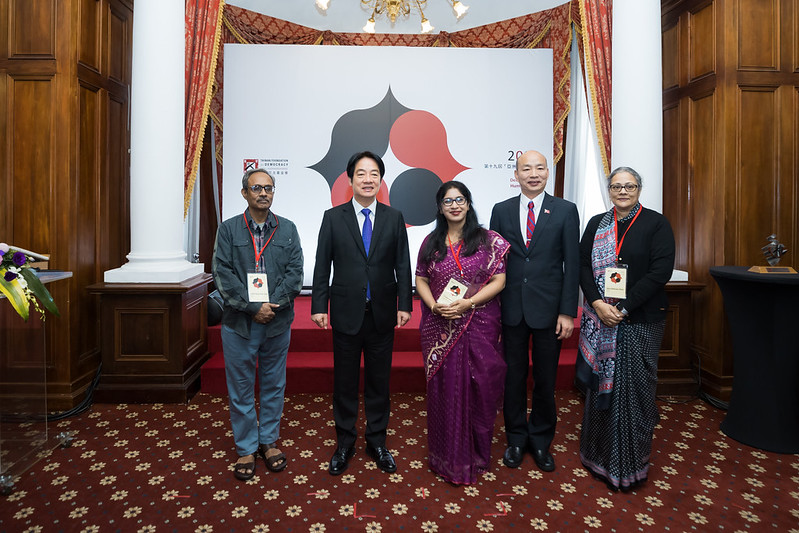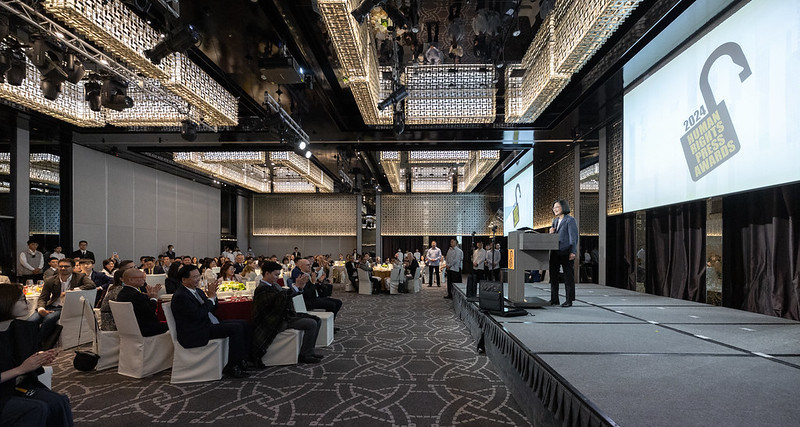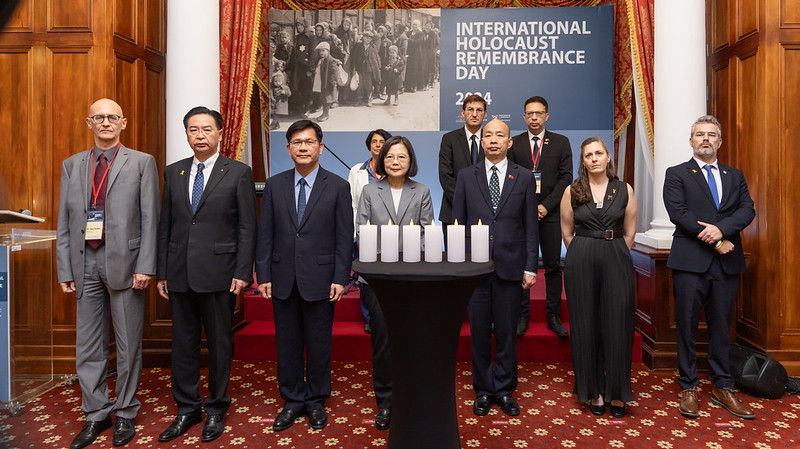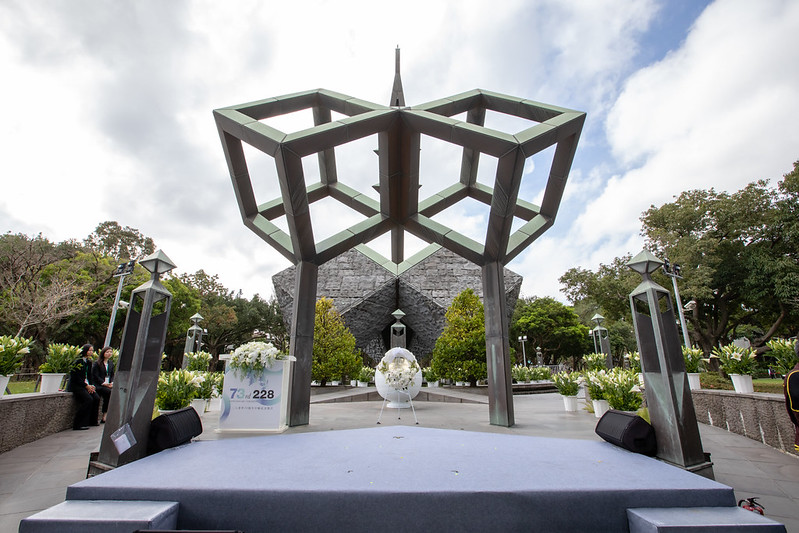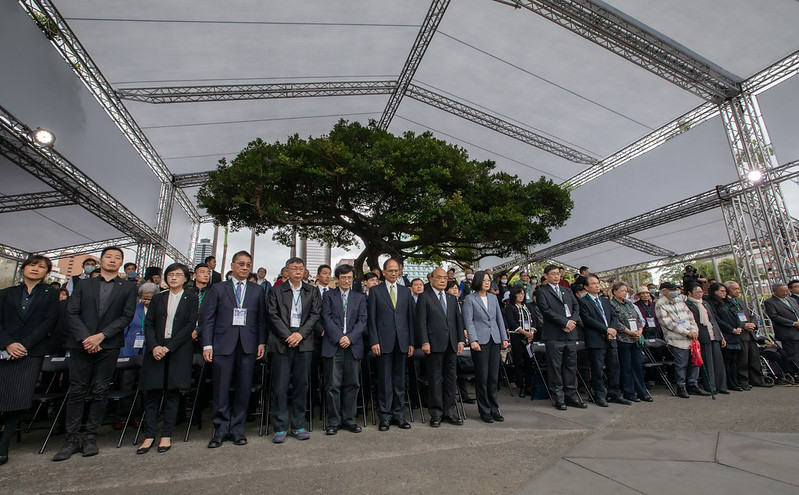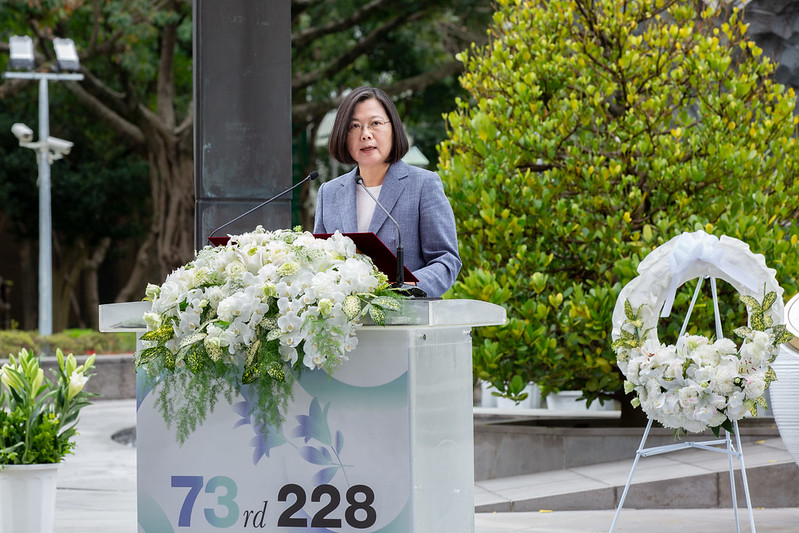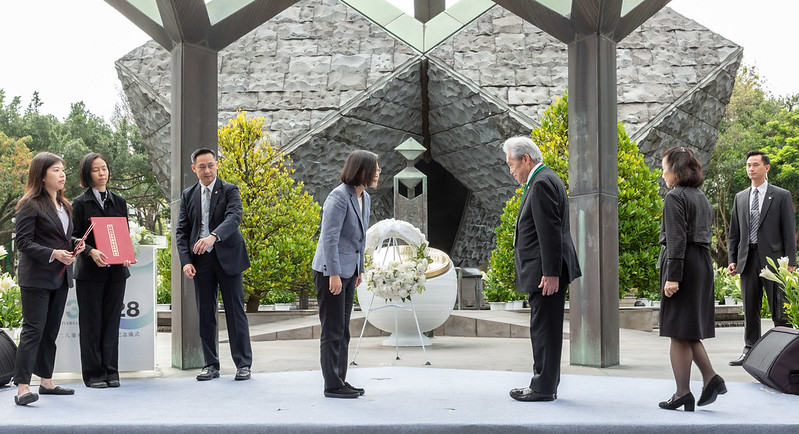News & activities
 News releases
News releases
President Tsai Ing-wen attended the nation's main memorial ceremony to mark the 73rd anniversary of the 228 Incident on the morning of February 28. In addition to presenting flowers as a sign of respect for the victims, the president stated that we must continue to pursue transitional justice; political archival records declassified and transferred to the National Archives Administration must be made available for public use based on the principle of "optimum openness, minimum restrictions;" and other requisitioned archival records must be declassified within one month. The president said that we will also continue to promote human rights education. When we have the courage to confront the mistakes of the past and pursue the truth, we can consolidate our democracy, and enjoy a more diverse and free society.
The following is a translation of President Tsai's remarks:
Over the past few years, we have held a memorial ceremony here to mark the 228 Incident. More than just a memorial park, this is also a historic site directly connected with that incident.
Not far from here is Taipei Zhongshan Hall, where the Committee to Settle the Monopoly Bureau Incident met for the first time in 1947. The Taipei Branch of Chang Hwa Bank near here was the site of the Taipei Branch of the Monopoly Bureau, the scene of violent protests against the 228 Incident in 1947. And right behind us is the Taipei 228 Memorial Museum, which housed the Taiwan Radio Station, where a major conflict occurred.
For many years, talking about the 228 Incident was taboo in Taiwan society. Then the 228 Peace Memorial Monument was erected in 1995. That same year, then-President Lee Teng-hui apologized to the people on behalf of the government. The following year, this park was renamed the 228 Peace Park.
Once the government adopted an apologetic attitude, school textbooks began to include information about the 228 Incident. More and more historic records were also uncovered. More and more victims came to light, and had their reputations restored when unjust verdicts were overturned.
New books and new discoveries have clarified who were the victims, and who were the perpetrators. This year, the 228 Memorial Foundation has published three new books, and just completed a report on the truth about the 228 Incident, and transitional justice.
In addition to the government and academia, people throughout Taiwan society have come forward with memories and records of the 228 Incident. Some young people are taking the initiative to investigate how the 228 Incident affected their own families and hometowns. And some people in the arts community are creating works with 228 themes.
The 228 Incident is no longer taboo, or a source of hatred. Now that we can talk about it in depth, Taiwanese society's sense of shared community has matured.
In addition to the 228 Incident itself, the subsequent political purge and White Terror campaign caused great harm. Over the past few years, we have pursued transitional justice because we believe that remembering history and reflecting about the past is not just to avoid repeating our mistakes, but to unify society and consolidate democracy so that Taiwan continues on the path of progress.
Premier Su Tseng-chang (蘇貞昌) recently announced that the Transitional Justice Commission has not completed its mission, so it will continue to function, and continue to bring historical truths to light. As long as there is a need, and the people believe that the Commission's work is still necessary to continue making progress on transitional justice, we will keep the Commission in operation.
We established the Transitional Justice Commission to uncover historical truths. But I want to emphasize that the government is a single, unified body. So transitional justice is not just a task for the Transitional Justice Commission. Every government agency must fully understand the essence of transitional justice, and work together to participate in its tasks, and our national security agencies are no exception.
Today is also a day of great sorrow, the 40th anniversary of the Lin family murders. A few weeks ago, the Transitional Justice Commission issued a report stating that the Lin family had been under state surveillance, and the possibility of state involvement in the murders cannot be ruled out.
Although the historical circumstances at that time were quite different, it is our solemn obligation to point out that past acts by the authoritarian government were serious mistakes that absolutely cannot be repeated.
The Transitional Justice Commission's report reveals many historical records that had never seen the light of day. This is the result of concerted efforts by all government agencies since I took office.
Since the "Political Archives Act" was implemented last year, we've accelerated the lawful acquisition, organization, and preservation of many archival records, and made them available to the public. But we have yet to complete our mission.
We must continue to pursue transitional justice. And I want to take this opportunity to proclaim these three principles:
First, political archival records prioritized by the Transitional Justice Commission that have been declassified and transferred to the National Archives Administration, including records about the Lin family murders and the death of Chen Wen-cheng (陳文成), must be made available for public use based on the principle of "optimum openness, minimum restrictions."
Second, National Security Bureau has advised me that the Bureau has accelerated the declassification of political archives over the past six months to accommodate the Transitional Justice Commission's investigation. I have also requested that the National Security Bureau declassify political archives requisitioned at this stage of its investigation within one month, except those few archives where declassification is prohibited by law.
Third, we will also continue to promote human rights education. Over the past few years, everyone has seen the National Human Rights Museum's contributions. This week, the Transitional Justice Commission's "Taiwan Transitional Justice Database" went online. In the future, after the Control Yuan's National Human Rights Committee is established, it will enhance oversight to enhance implementation of human rights concepts in Taiwan.
Distinguished seniors, family members, and fellow citizens, through our efforts over many generations, the historical truths of the 228 Incident and the authoritarian era have become much clearer.
Time has proven that a willingness to face history and pursue the truth will not divide a society. On the contrary, it is precisely because we have the courage to confront the mistakes of the past and pursue the truth that we can consolidate our democracy, and enjoy a more diverse and free society.
If we all believe that, then the more we uncover the truth, the more it will empower us to consolidate democracy and defend freedom. We cannot fail our forebearers and their determination, generation after generation, to sacrifice their lives to fight for freedom and seek democracy through toil and tears.
Finally, we should reflect on the misfortunes that totalitarianism brings to the people, and reflect on the need to defend and cherish freedom and democracy. The tragedy of the 228 Incident should never be repeated in any corner of the world. Let us not forget the 228 Incident, and let us not forget the people's fight against authoritarianism, borne out of their most profound aspiration to achieve freedom and democracy. Thank you.
After concluding her speech, President Tsai personally awarded "certificates of restored reputation" to the family members of 228 victims Pan Ying-ren (潘英仁), Pan Hsin-hsing (潘信行), and Chen Su-hwa (陳淑華). Also present at the event were Premier Su, Legislative Yuan President Yu Shyi-kun (游錫堃), Mayor Ko Wen-je (柯文哲), Minister of the Interior Hsu Kuo-yung (徐國勇), Minister of Culture Cheng Li-chiun (鄭麗君), Transitional Justice Commission Acting Chairwoman Yang Tsui (楊翠), Chairman Hsueh Hua-yuan (薛化元) of the 228 Memorial Foundation, National Policy Advisor to the President Chang Fu-mei (張富美), Legislator Lim Tshiong-tso (林昶佐), as well as 228 victims and family members.
